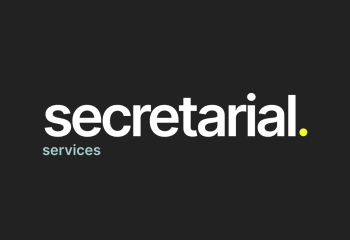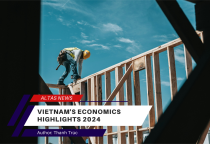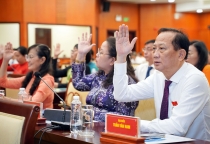On 29 May 2025, during its 9th session, the 15th National Assembly passed Resolution No. 201/2025/QH15 with high consensus. This Resolution introduces a five-year pilot implementation of specific mechanisms and policies, effective from 1 June 2025, aimed at promoting the development of social housing nationwide. The core objective is to support the implementation of the Government’s plan to develop at least one million social housing units for the period 2021–2030.
The Resolution seeks to remove longstanding barriers relating to administrative procedures and financial access, thereby facilitating affordable housing access for key groups such as low-income earners, industrial park workers, teachers in remote areas, border guard officers, and individuals affected by administrative boundary adjustments.
- KEY CONTENT OF THE RESOLUTION
The Resolution comprises 14 articles and sets out specific mechanisms aimed at simplifying procedures and providing financial support for social housing development. Key provisions include:
- Establishment of the National Social Housing Fund
The establishment of the National Social Housing Fund under Resolution No. 201/2025/QH15 marks a significant breakthrough in social housing policy. This is a non-profit, off-budget financial fund with legal entity status. The Fund’s capital is sourced from the central State budget, land value proceeds, revenues from the sale of public housing, and voluntary contributions. The Fund is tasked with providing stable, long-term financing to social housing projects—particularly rental housing—thereby alleviating financial burdens for both developers and buyers.
Given the stagnation or suspension of many social housing projects due to funding shortages, the establishment of a dedicated, centralized financial channel is crucial. The Fund not only reduces reliance on high-interest commercial loans but also opens flexible financing opportunities for low-income groups with limited access to traditional credit.
- Direct Appointment of Developers and Simplified Investment Procedures
The mechanism for directly appointing developers without tendering, as stipulated under Resolution No. 201/2025/QH15, is designed to shorten project implementation timelines and reduce administrative burdens, thereby expediting the commencement of social housing projects—where timely progress is urgently needed. In practice, tender procedures often prolong project preparation by 6 to 12 months, becoming a key bottleneck in the sector.
- Simplification of Planning and Approval Procedures
Resolution No. 201/2025/QH15 introduces procedural reforms for social housing investment. Notably, it waives the requirement for detailed planning for unapproved projects and allows developers to self-approve project plans without a feasibility study. Projects are subject to post-construction audits to ensure compliance with regulations, technical standards, and overall urban planning.
This approach significantly shortens the investment preparation stage—normally taking 9 to 12 months—and reduces administrative costs for investors, while encouraging participation by capable developers who may lack experience with complex public procedures.
- Flexible Pricing Mechanism
A key innovation in Resolution No. 201/2025/QH15 is the adoption of a flexible pricing mechanism for social housing. Developers are permitted to independently set sale and rental prices, instead of being bound by fixed government pricing frameworks. However, these prices are subject to post-construction audits. If actual costs are lower than the declared price, the difference must be refunded to buyers or tenants. Conversely, if actual costs exceed the declared price, developers may not charge additional amounts.
This mechanism provides flexibility and responsiveness to market fluctuations, particularly in construction material and labor costs, enhancing the commercial viability of social housing projects. It also encourages more private sector participation in the segment.
- Eligibility Conditions and Target Groups
The Resolution clarifies the eligibility conditions for purchasing or leasing social housing to better reflect practical realities. For provinces or cities undergoing administrative consolidation, housing eligibility is determined based on the pre-consolidation administrative boundaries, ensuring that affected residents are not disadvantaged.
In addition, individuals working far from their place of residence may still qualify to buy or rent social housing if they do not own housing near their workplace. This provision is especially relevant for civil servants, public employees, and workers who are frequently relocated or migrate between regions. The policy also enables enterprises to lease housing on behalf of employees, reflecting integration with labor and social security policy.
- POSITIVE IMPACTS OF THE RESOLUTION
Before the adoption of Resolution No. 201/2025/QH15, Vietnam’s social housing policy faced multiple institutional and practical barriers. Lengthy procedures, complex investment selection processes, poor inter-agency coordination, and insufficient capital have all contributed to slow project progress and unmet housing demand—particularly for low-income earners. This Resolution introduces synchronized solutions, including procedural reforms, investment incentives, and the establishment of a dedicated financial mechanism.
For instance, administrative streamlining is a key breakthrough. According to the Ministry of Construction, project timelines can be reduced by at least 350 days through the elimination of intermediary steps such as investor tendering, detailed planning, and design approval.
Financially, the National Social Housing Fund marks Vietnam’s first dedicated, non-profit financial mechanism for social housing, providing concessional funding for both developers and end-users.
Furthermore, the ability to appoint developers and approve investment plans autonomously accelerates implementation, especially in rapidly urbanizing or industrializing areas, where housing supply is urgently needed.
- IMPLEMENTATION RISKS
Despite its innovations, the effective implementation of Resolution No. 201/2025/QH15 entails several risks if not accompanied by appropriate safeguards.
Firstly, the success of the National Social Housing Fund depends on its ability to mobilize sustainable resources and distribute capital fairly. Without transparent allocation criteria, there is a risk that poorer localities with few projects may be disadvantaged. Transparent governance and independent oversight are critical.
Secondly, the mechanism for direct developer appointment, while efficient, risks favoritism and inequity if not based on transparent selection criteria. Disclosure of appointed developers and ongoing progress reports must be mandatory.
Thirdly, allowing self-approval of project plans without external review may lead to regulatory non-compliance, poor infrastructure integration, or uncoordinated developments. A stringent, enforceable post-audit regime is required.
Fourthly, the flexible pricing mechanism, though beneficial, may be abused in the absence of benchmark pricing. Clear pricing guidelines and transparent audits are necessary to protect buyers and tenants.
Lastly, eligibility criteria for beneficiaries must be precisely defined. In particular, “remote from workplace” should have a clear legal threshold, and enterprise leasing should be capped to ensure individual access to housing remains the central policy goal.
Overall, while the Resolution reflects a bold and timely policy shift, its success hinges on concurrent regulatory oversight, strong local governance, and meaningful stakeholder participation, including civil society, auditors, and the media.
- IMPLEMENTATION STATUS AND FUTURE PLANS
According to the Ministry of Construction, in the first five months of 2025, 21 social housing projects comprising 20,428 units were initiated, and 22,649 units were completed. Immediately after the Resolution was passed, the Government issued Resolution No. 155/NQ-CP on 1 June 2025 to guide nationwide implementation, with concrete targets of 100,000 units by the end of 2025 and one million units by 2030.
However, these ambitious targets require more than policy declarations—they demand strong political will and execution capacity from provincial governments. Local leadership must coordinate zoning, land allocation, finance, and construction in a timely and synchronized manner. Further, inter-ministerial coordination and timely issuance of detailed guidelines are essential to ensure uniform implementation and avoid legal gaps.
- How ALTAS Can Assist You:
ALTAS LAW is uniquely positioned to assist your business in navigating these complex administrative reforms. We offer a comprehensive suite of legal and business services designed to provide seamless support during this transition period:
- Accounting and Tax Services: We also offer accounting and tax services to help your business manage the financial implications of these reforms, including tax planning, reporting, and compliance.
- Licensing & Regulatory Compliance: We will meticulously review your existing licenses and permits, advise on necessary amendments or renewals, and guide you through the process of obtaining any new approvals. Our team will also ensure your compliance with all relevant regulatory changes.
Please feel free to reach us via email contact@altas.vn to discuss your specific concerns and explore how we can partner with you to navigate these reforms successfully.














(5).png)




![[LEGAL UPDATE] The Presidential Order announces the promulgation of Law No. 56/2024/QH15. [LEGAL UPDATE] The Presidential Order announces the promulgation of Law No. 56/2024/QH15.](thumbs/210x144x1/upload/news/van-phong-chu-tich-nuoc-2-3616.jpg)
![[TAX UPDATE] Regulations on Tax Registration Replacing Circular 105/2020/TT-BTC [TAX UPDATE] Regulations on Tax Registration Replacing Circular 105/2020/TT-BTC](thumbs/210x144x1/upload/news/kelly-sikkema-tqq4bwnufs-unsplash-3606.jpg)
![[LEGAL UPDATE] Responsibility for Submitting Reports on the Employment of Foreign Workers and Participation in Unemployment Insurance in January 2025 [LEGAL UPDATE] Responsibility for Submitting Reports on the Employment of Foreign Workers and Participation in Unemployment Insurance in January 2025](thumbs/210x144x1/upload/news/zach-wear-k1rtd9cytvw-unsplash-1-9289.png)

![[LEGAL UPDATE DECEMBER 2024] DECREE NO. 111/2024/ND-CP [LEGAL UPDATE DECEMBER 2024] DECREE NO. 111/2024/ND-CP](thumbs/210x144x1/upload/news/istock-1221293664-1-1-1-7650.jpg)






